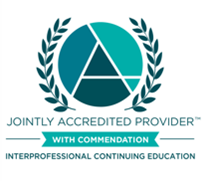This ten-part online seminar series will cover a majority of the CMS Hospital CoP manual – Appendix A. It is an excellent way to educate everyone in your hospital on all the sections of the CMS hospital manual, especially ones that apply to their department.
Every hospital that accepts payment for Medicare and Medicaid patients must comply with the Conditions of Participation. The manual has interpretive guidelines that must be followed for all patients treated in the hospital or hospital owned departments. Facilities with deemed status accredited by the Joint Commission (TJC), HFAP, CIHQ, and DNV Healthcare must follow these regulations.
Sections addressed include infection prevention and control and antibiotic stewardship program, QAPI, medical record services, dietary, utilization review, emergency services, surgical services, anesthesia, PACU, medical staff, nursing services, lab, rehabilitation, radiology, respiratory, physical environment, pharmacy, organ and tissue procurement, patient rights including restraint and seclusion, and discharge planning.
The interpretive guidelines serve as the basis for determining hospital compliance and though some changes from 2020 continue to have interpretive guidelines and survey procedures pending, hospitals are still expected to comply with the regulations. This program will include the 2020 changes, 2023 and 2024 updates and where some of the gaps continue – absence of interpretive guidelines and survey procedures, and any recent updates.
Registration Pricing
Member: $925 for entire series
Non-Member: $1175 for entire series
Registration includes unlimited connections per registered facility.
Who Should Attend:
CEOs, chief operations officers, chief nursing officers, chief legal officers, nurses and medical staff, quality managers, nurse educators, risk managers, compliance officers, chief of health information, pharmacists, social workers, discharge planners, patient safety officers, outpatient director, director of rehab, infection control, directors of radiology.
Continuing Education

Continuing Medical Education
This educational activity is jointly provided by AXIS Medical Education and Texas Hospital Association. The Texas Hospital Association is applying for approval from the following accrediting organizations for the CMS CoPs 2025 Series.
In support of improving patient care, this activity has been planned and implemented by AXIS Medical Education and Texas Hospital Association. AXIS Medical Education is jointly accredited by the Accreditation Council for Continuing Medical Education (ACCME), the Accreditation Council for Pharmacy Education (ACPE), and the American Nurses Credentialing Center (ANCC), to provide continuing education for the healthcare team.
Credit Designation for Nursing
AXIS Medical Education designates this continuing nursing education activity for 1.0 contact hours each and 2.0 contact hours for March 27, 2025, session only.
Learners are advised that accredited status does not imply endorsement by the provider or ANCC of any commercial products displayed in conjunction with an activity.
Click here for more information.
American College of Healthcare Executives
By attending the CMS Hospital Conditions of Participation (CoPs) 2025 Webinar Series offered by Texas Hospital Association participants may earn up to 1.0 ACHE Qualified Education Hours each part toward initial certification or recertification of the Fellow of the American College of Healthcare Executives (FACHE) designation.
CMS CoPs – Part 1
Tuesday, March 25, 2025, Noon-1 p.m.
Part One of Ten: Introduction, hospital deficiency reports, CMS Survey Memos of interest, compliance with laws including OCR 1557, required education, emergency services, and outpatient services.
Learning Objectives:
- Discuss how to locate the current CMS CoP manual
- Describe essential requirements from recent memos, including texting of orders
- Describe the requirements of emergency services to be integrated into other services
- Discuss the necessary number and types of personnel for outpatient services
CMS CoPs – Part 2
Thursday, March 27, 2025, Noon-2 p.m.
Part Two of Ten: Patient Rights: Advance Directives, Giving Consent, Interpreters, Grievances, Exercise of Patient Rights, Disclosures, Privacy, Safety, Ligature Risks, Abuse and Neglect, Confidentiality, and Visitation, Restraint and Seclusion
Learning Objectives:
-
- Describe the requirement for a hospital to have a grievance policy and procedure in place
- Recall that interpreters should be provided for patients with limited English proficiency and hearing impairment
- Describe the various patient rights to include providing consent, forming advance directives and visitation rights
- Recall that CMS has restraint standards that hospitals must follow
CMS CoPs – Part 3
Tuesday, April 1, 2025, Noon-1 p.m.
Part Three of Ten: Nursing
Learning Objectives:
-
- Describe which medications must be given timely and within one of three blocks of time
- Recall the requirements for a director of nursing for each hospital
- Recall that all order/protocols should be approved by the Medical Staff and an order entered into the medical record and signed off
- Recall that the hospital must have a safe opioid policy approved by the MEC and staff must be educated on the policy
CMS CoPs – Part 4
Thursday, April 3, 2025, Noon-1 p.m.
Part Four of Ten: Pharmacy and Pharmaceutical Services
Learning Objectives:
-
- Recall the drug storage and pharmacy management requirements
- Discuss patient safety issues with compounding pharmacies
- Explain the several types of medication events
- Recall that the hospital must have a safe opioid policy approved by the MEC and staff must be educated on the policy
CMS CoPs – Part 5
Tuesday, April 8, 2025, Noon-1 p.m.
Part Five of Ten: Governing Body (Board), Medical Staff, Utilization Review
Learning Objectives:
-
- Recall the requirements for an effective governing body and its respective responsibilities
- Discuss the board responsibilities for telemedicine providers
- Recall the necessary requirements for effective credentialing of providers
- Discuss the composition of the utilization review committee
CMS CoPs – Part 6
Thursday, April 10, 2025, Noon-1 p.m.
Part Six of Ten: Quality Assurance and Performance Improvement, Discharge Planning
Learning Objectives:
-
- Recall the requirement for and elements of a QAPI program
- Discuss the governing body’s responsibilities for QAPI program
- Recall that patients referred a post-acute care provider – PAC – must be given a list in writing of those available and this must be documented in the medical record
- Discuss the requirement for a discharge evaluation and when requested – a discharge plan be developed
CMS CoPs – Part 7
Tuesday, April 15, 2025, Noon-1 p.m.
Part Seven of Ten: Medical Records
Learning Objectives:
-
- Recall the requirements for a security risk analysis
- Describe the time limitations for a history and physical for an inpatient undergoing an elective surgery
- Describe the mandatory elements of informed consent
- Recall what must be included in any medical record
- Describe the four exceptions to information blocking
CMS CoPs – Part 8
Thursday, April 17, 2025, Noon-1 p.m.
Part Eight of Ten: Surgery, PACU, Anesthesia and Organ Procurement
Learning Objectives:
-
- Recall the required surgical policies
- Discuss recent updates to surgical consent requirements to include exams outside of designated procedure
- Recall that CMS has specific things that are required be documented in the medical record regarding the post-anesthesia assessment
- Describe that all staff must be trained in the hospital’s policy on organ donation
CMS CoPs – Part 9
Tuesday, April 22, 2025, Noon-1 p.m.
Part Nine of Ten: Laboratory, Radiology services, Dietary, Rehabilitation and Respiratory services
Learning Objectives:
-
- Recall the requirement for adequate laboratory services
- Describe the need for radiology policies, including radiation safety and need for qualified staff
- Discuss the new option of credentialing the dietician to order diets – if allowed by the state
- Recall the requirements for optional services of rehab and respiratory services
CMS CoPs – Part 10
Thursday, April 24, 2025, Noon-1 p.m.
Part Ten of Ten: Infection Prevention and Control and Antibiotic Stewardship Program, Plant and Physical Environment, Emergency Preparedness
Learning Objectives:
-
- Discuss that CMS requires many policies in infection prevention and control
- Recall the duties and responsibilities of the infection preventionist and leader of the antibiotic stewardship programs
- Describe the need for facility maintenance program to include water management and ligature safety
- Recall the necessary training and testing for a hospital’s emergency preparedness program
Faculty

Laura A. Dixon, BS, JD, RN, CPHRM, President, Healthcare Risk Education and Consulting, LLC, Denver, CO
Laura A. Dixon recently served as the Regional Director of Risk Management and Patient Safety for Kaiser Permanente Colorado where she provided consultation and resources to clinical staff. Prior to joining Kaiser, she served as the Director, Facility Patient Safety and Risk Management and Operations for COPIC from 2014 to 2020. In her role, Ms. Dixon provided patient safety and risk management consultation and training to facilities, practitioners, and staff in multiple states. Such services included creation of and presentations on risk management topics, assessment of healthcare facilities; and development of programs and compilation of reference materials that complement physician-oriented products.
Prior to joining COPIC, she served as the Director, Western Region, Patient Safety and Risk Management for The Doctors Company, Napa, California. In this capacity, she provided patient safety and risk management consultation to the physicians and staff for the western United States. Ms. Dixon’s legal experience includes medical malpractice insurance defense and representation of nurses before the Colorado Board of Nursing.
Ms. Dixon has more than twenty years of clinical experience in acute care facilities, including critical care, coronary care, peri-operative services, and pain management.
As a registered nurse and attorney, Laura holds a Bachelor of Science degree from Regis University, RECEP of Denver, a Doctor of Jurisprudence degree from Drake University College of Law, Des Moines, Iowa, and a Registered Nurse Diploma from Saint Luke’s School Professional Nursing, Cedar Rapids, Iowa. She is licensed to practice law in Colorado and California.
